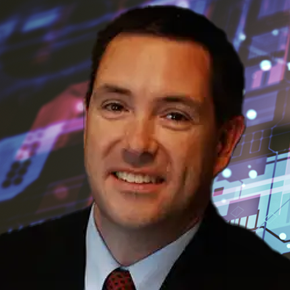October 5, 2023
What is Cost Engineering?

Transcript
What is Cost Engineering?
Cost engineering is an engineering practice deeply intertwined with project management and business planning. As the manufacturing industry evolves, so do the complexities of engineering for cost, requiring a holistic approach to cost management. This is where cost engineering shines, providing innovative methodologies for cost control, forecasting, and ultimately ensuring profitability.
In this podcast, we’ll answer the questions:
- What does a cost engineer do?
- What are the biggest challenges facing cost engineers?
- How do cost engineers partner with other stakeholders to create accurate cost estimates that impact decision-making at different stages in product development?
To get our questions answered, I turned to Jerry Collins, the founder of the Society of Cost Engineers. After a long engineering career in the automotive industry, from engineering seat systems to negotiating multi-million dollar deals for the electronic components and brake systems, Jerry Collins got the opportunity to work outside of the auto industry and launch an entirely new cost engineering department. In working on the full spectrum of cost engineering jobs, from small project plans to major engineering practice decision-making, Jerry Collins has gotten an inside knowledge of cost engineering matched by few others in the engineering discipline. We are very grateful to have him answer our question today, what is cost engineering? Jerry Collins, welcome to the podcast.
Jerry Collins: Thanks so much for having me, Leah, it’s a pleasure to be here.
Does Cost Engineering to Prevent Cost Overruns?
Leah Archibald: Many people think that the role of cost engineering is to prevent cost overruns. Is that true or is there more to it than that?
Jerry Collins: There’s actually a lot more to it than that. And actually, the definition of cost engineers is very broad. There’s cost engineers who do control the expenditures, if you will, and keep track of the actual budgets and the expenses. There are cost engineers who predict costs for future products. There are cost engineers who predict what it costs to buy something, those are should cost engineers. So there’s a huge expanse of capabilities and uses for a cost engineer.
I specialized in should costing. Should costing is where you actually predict what it would cost to purchase something before the product’s even designed. Or should costing is when you help a purchasing organization negotiate for the best price that you can get. That’s one area of cost engineering. Another are of cost engineering is keeping the cost control, so as the project goes through, you make sure it’s on budget.
So we play a lot of different roles. There is no real good solid definition of a cost engineer like there is for a design engineer or a manufacturing engineer. Cost engineering, although it’s not a new discipline, is relatively new compared to the rest. It’s probably been around for the last 30, 40, or 50 years, and the other ones have been around for centuries.
What is the Biggest Challenge for Cost Engineers?
Leah Archibald: What do you think is the biggest challenge a working-level cost engineer might face?
Jerry Collins: That’s a great question. There are a couple of very big challenges. One challenge is that every day you’re faced with predicting or calculating costs of processes or products you’re totally unaware of. This is particularly true if you’re out there buying something that your company does not produce. So you need to understand what it takes to produce that product. So you’ve got to understand the manufacturing required. You’ve got to understand the labor required. You’ve got to understand the facilities required. You’ve got to understand all of that to calculate a cost. And if you’re unfamiliar with that product, it’s very difficult to research all of those.
Leah Archibald: It sounds like there’s a lot of engineering management that goes into this role. So it’s not just that you’re as a cost engineer, engineering cost, it’s really that you are managing the engineering process from the perspective of cost.
Jerry Collins: Absolutely. We are trying to understand what is the best process to make a particular product? What is the best labor? What is the best material? And we’ll be doing trade-offs. We will try to understand what is the most opportune way to make the product that we are trying to purchase or manufacture.
Leah Archibald: I’ve been in conversations with cost engineers who have told me that the most difficult part of their job is that the rest of the product development team is not paying any attention to the cost. So there’ll be this whole work up until it gets to them, and then they’re doing some re-engineering. But if the rest of the team was paying attention to the cost all the way through, then the cost engineer’s job would be more collaborative and wouldn’t be so combative. Is that what you find either in your own work or with the other cost engineers who come to the society?
Jerry Collins: Absolutely correct. Cost engineering should be brought in in the very beginning, and ideally, every engineer should be a cost engineer. In my opinion, every employee should be concerned about cost. Every engineer wants to make the best, the greatest thing, they do not usually care about cost. When the cost engineer gets involved it is usually much, much later in the design phase. And unfortunately, a lot of times after even say a validation phase where everything’s been tested, the cost engineer has to come back and say, “Look, you over-designed it, we can’t afford this.” It becomes very combative. Unfortunately, the whole organization needs to bring in cost engineering from the very beginning of the concept. When you’re first working in your marketing, cost engineering should be there. Before you put to your first pencil to the paper, you should have a cost engineer.
aPriori Brings Cost Engineering into the Product Design Phase
Leah Archibald: For engineering teams that use aPriori — a SAAS platform that gives immediate insights into cost, manufacturability, and carbon — the design engineers have a cost management tool from the beginning of the design process. S0 when design engineers are starting to put their design together, they can say, “How does this design feature impact cost? How would a change of material impact cost? Or carbon?”
Jerry Collins: So to be 100% transparent, I think that is one of the best features of aPriori. It’s on the designers desk. It is not a separate department. A lot of companies will design it, throw it over the wall, and then the cost engineer will look at it, predict the cost, and that’s when the conflict starts. If the designer can actually see the impact he’s having by making various changes, that is the ideal situation.
Leah Archibald: And do cost engineers want that? Do they want to be working more collaboratively with the designers?
Jerry Collins: So one of your first questions was what are the biggest challenges of cost engineers? Another challenge is where do cost engineers actually sit in the organization? Some organizations put cost engineers in the engineering department. Some organizations put cost engineers in the finance department. And some put cost engineers in the purchasing department. Depending on where you put cost engineers, they’re supposed to act like a checks and balances. You have to figure out what your purpose is for having cost engineers in your organization, and how you want to use them.
How Do Cost Engineers Help Product Design?
Leah Archibald: Where do you think cost engineering should fit within the overall ecosystem of the design process?
Jerry Collins: I would think ideally, the utopia would be that the design engineer is actually a cost engineer, which is what aPriori is doing. Ideally, you still need checks and balances. In many companies, one of the best areas to place cost engineers is within the finance department. If you’re in the purchasing department, this leads to another problem — we’re telling actual buyers what they should be buying this for. So not only are we fighting engineering, but we’re also fighting purchasing. So ideally, the finance department is a good home for cost engineers. And within the design process, cost engineering is an added discipline that the design engineer should know from the very beginning. If the design engineer is trying to design to the best of cost, then there is no conflict because it’s inherent in the product.
Leah Archibald: So tell me about this utopia that you dream of creating within the Society of Cost Engineers.
Jerry Collins: So my utopia would be not only do engineers worry about cost, everybody worries about cost, all the way down to the janitors. But specifically to the cost engineers, the hope is that the design engineer understands what he’s designing and the cost impact he’s having on every selection that he picks. There’s an old study that says, 80 or of the cost is applied during the design phases. So cost needs to be understood from the very beginning. What I’m doing with the Society of Cost Engineers is educate people, by sharing information across all regions, across all processes, across all industries.
Leah Archibald: This is something that aPriori does with our software, putting cost numbers to the individual processes, and even down to the individual machines.
Jerry Collins: Absolutely. We need to ask these questions. Is labor included? Is profit included? Is floor space included? Are they calculating it over available hours? Are they calculating it over pieces that they create? A true cost engineer actually understands all of the accounting as well as the engineering.








